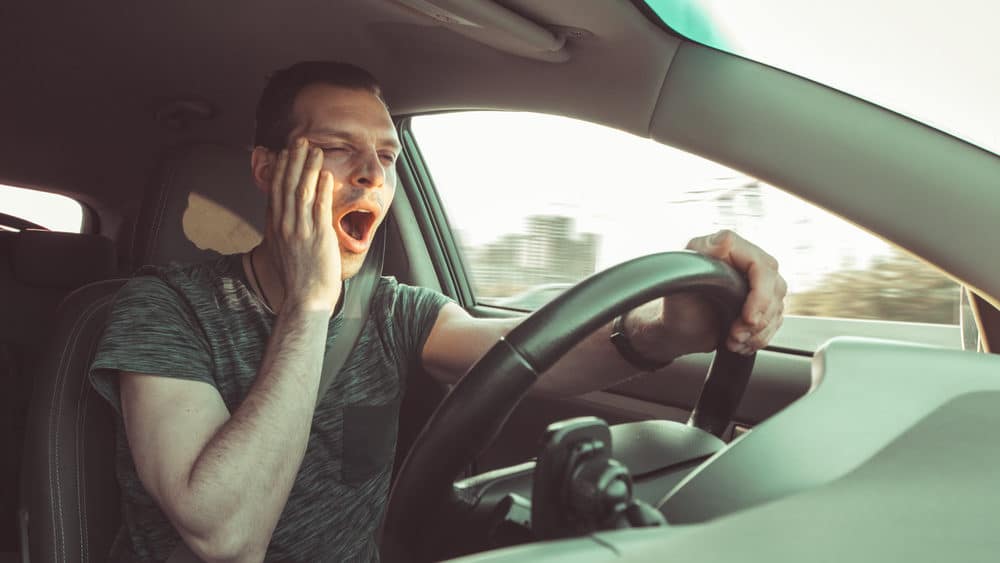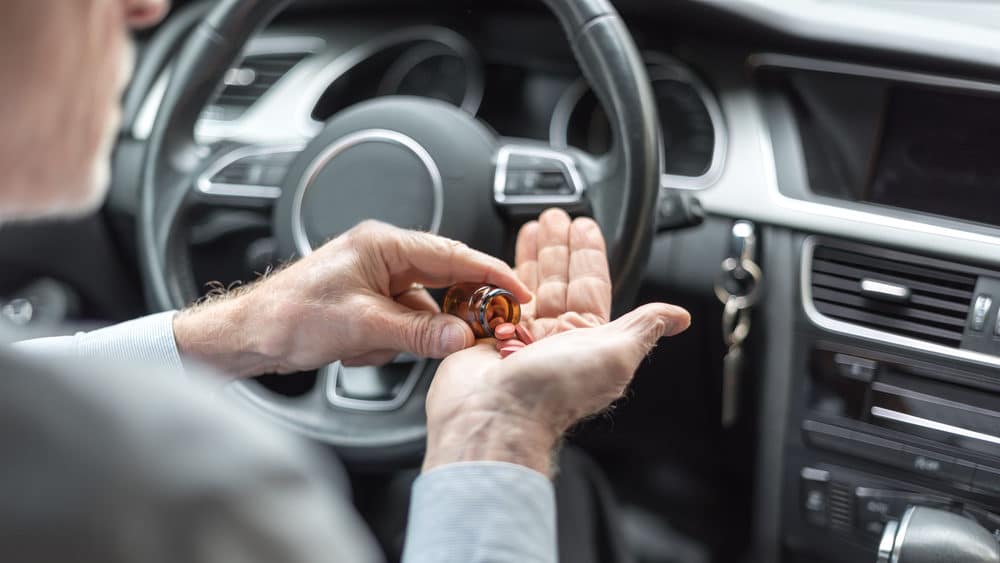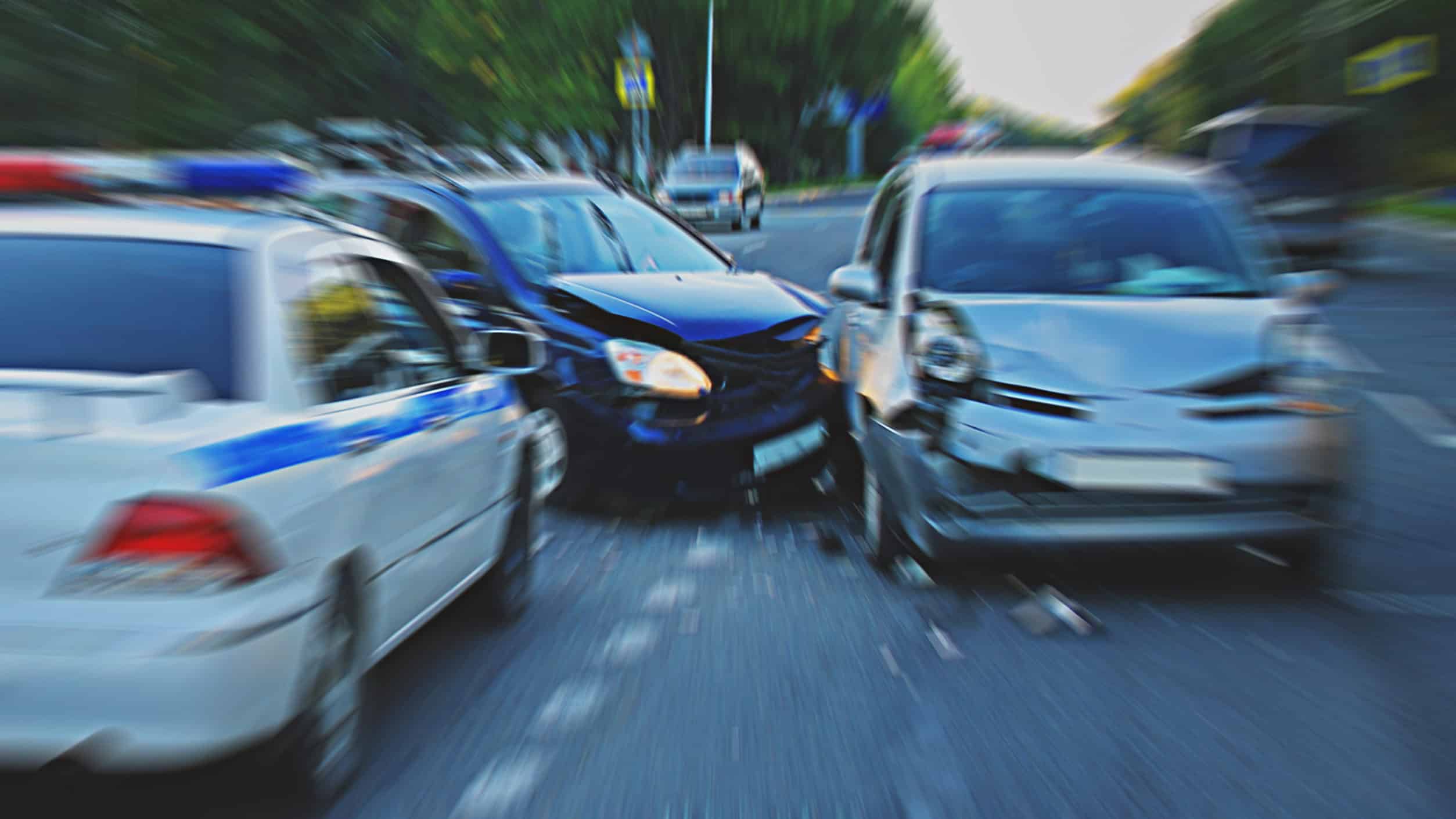Understanding the concept of being “under the influence” is necessary when assuming driving responsibilities. It has more than one approach, like most things in the legal field.
People can be “under the influence” in various ways, not only when consuming illegal substances. The most common causes of impaired driving are alcohol, prescription drug abuse, or illicit drug use. Some legally obtained and commonly used over-the-counter and prescription drugs may also affect the ability to drive safely. Some medicines that can cause side effects, such as antidepressants, opioids, and sleep aids, are known to cause drowsiness, nausea, and blurred vision, which can be dangerous for drivers.

If you are taking a prescription drug, or if you get a new prescription or a higher dose, until you know how it impacts your judgment, coordination, and reaction time, you mustn’t drive. Also, keep in mind that certain medications may not impair you by themselves. However, if they are taken with another medication or alcohol, they may cause impairment. It is important to remember that warnings against operating heavy machinery include the operation of vehicles as well.
Impaired driving is still one of the greatest dangers on our roads, despite being illegal all over the country. Before you drive, make sure you read and follow all warning labels. Regardless of term preference, the fact remains: If someone feels a little high, buzzed, stoned, wasted, or drunk, it is unsafe for them to drive. If you are taking an over-the-counter or prescription drug that could impair your driving ability, you shouldn’t get behind the wheel. At the doctor’s office or pharmacy, understand the warnings about the drugs you are getting.
Based on the 2013–2014 National Roadside Survey results, “10% of weekday daytime drivers surveyed tested positive for prescription and/or over-the-counter drugs.”.

NHTSA Must-Knows When Using Any Legal Drug
- Some prescription drugs can induce drowsiness, cause nausea, affect judgment, and lessen coordination, all of which can prove fatal when driving.
- In addition to causing drowsiness and nausea, prescription drugs can affect judgment and decrease coordination; all are potentially fatal when taken while driving.
- The side effects of over-the-counter drugs can include drowsiness, dizziness, nausea, irregular heartbeats, and shakiness; harmful side effects while driving.
- Some antidepressants and prescription medications have been associated with increased crash risk, including opioids, sedatives, muscle relaxants, and sedatives.
- It is possible that some medications will not cause impairment on their own but may do so if taken with another drug or alcohol, or both.
- Those who violate state DUI laws can get arrested for driving under the influence of any substance that causes impairment, including prescription drugs and over-the-counter medications.
Skills That Determine the Ability to Drive
According to the Department of Motor Vehicles, driving safely requires the following skills:
- Strength: The ability to fasten the safety belt, apply the brake, and turn the steering wheel.
- Flexibility: The ability to turn your head to look into your mirrors or over your shoulder to check your blind spots.
- Stamina: Long-term driving (over 20 minutes) without getting tired or falling asleep.
- Vision: A person’s ability to observe objects, vehicles, bicyclists, and pedestrians around them. Sharpness and clarity of vision.
- Complex Thinking: Understanding road signs, anticipating hazards, and responding appropriately to them to promote safe driving.
Getting in the way of any of these skills puts safe driving at risk. Side effects of prescription or over-the-counter medications can occur, some of them are:
- Sleepiness.
- Blurred vision.
- Slowed reaction and movement.
- Dizziness.
- Fainting.
- Inability to focus or pay attention.
- Nausea.
Any of these symptoms represent a danger on the roads since they affect directly the principal skills required.

Basics of The California Law – Vehicle Code “Rules Of The Road”
(a) It is unlawful for a person under the influence of any alcoholic beverage to drive a vehicle.
(b) It is unlawful for a person who has 0.08 percent or more, by weight, of alcohol in their blood to drive a vehicle.
(c) It is unlawful for a person who is addicted to the use of any drug to drive a vehicle. This subdivision shall not apply to a person participating in a narcotic treatment program approved.
(d) It is unlawful for a person who has 0.04 percent or more, by weight, of alcohol in their blood to drive a commercial motor vehicle.
(e) It is unlawful for a person who has 0.04 percent or more, by weight, of alcohol in their blood to drive a motor vehicle when a passenger for hire is a passenger in the vehicle at the time of the offense.
(f) It is unlawful for a person under the influence of any drug to drive a vehicle.
(g) It is unlawful for a person under the combined influence of any alcoholic beverage and drug to drive a vehicle.
Prescription Drugs Can Cause DUI’s
Consequences after a DUI depend on whether the offender has previously committed a DUI offense. The penalties become more severe with each additional DUI/DWI offense.
A first-time DUI is a misdemeanor in California, and usually results in the following penalties:
- License restriction or suspension, usually for six months.
- Three years of informal probation.
- A $390 fine, plus any penalty assessments (totaling up to $2000).
- A first-offender alcohol program consisting of a costly 30-hour class.
A second-time DUI usually results in the following penalties:
- Minimum of 96 hours in jail
- Suspension of license for two years
- A $390 fine, plus any penalty assessments (totaling up to $2000)
- Longer probationary period
A third-time DUI usually results in the following penalties:
- Minimum of 120 days in jail
- Fines between $1000 – $1800
- Suspension of license for three or more years
Average Settlement from a DUI Accident
The average settlement for a DUI accident in the United States is about $125,000. Since every car accident is different, compensation can be settled for less than $10,000, and sometimes for more than $1,000,000. Settlements vary greatly, that’s why anyone in need of assistance for an accident involving impaired driving, shall have on their side an award-winning impaired driving accident attorney from Wilshire Law Firm. We guarantee a fight for the maximum compensation you may deserve.
What Should I Do After an Accident with an Impaired Driver?
In the event of a DUI driving accident, the steps you take are critical and can affect your recovery.
If possible, you should attempt to do the following after the accident:
- Remain calm and encourage others around you to stay calm. After an accident, stress levels can be high, but this is the time to remain calm, focused, and aware.
- Attempt to get to safety. Remove yourself and others away from the path of any other motor vehicle, fires, or destroyed property.
- Check your body for injuries. Don’t assume you don’t have injuries just because you feel fine – an adrenaline rush can temporarily override symptoms of an internal injury after the accident.
- Call 911 and Emergency Medical Services. If you or anyone involved in the accident is injured, immediately call 9-1-1. Ask the police to create an official accident report and to provide you with an exact copy. The accident report will be an essential piece of evidence for your drunk driving accident claim.
- Get documentation of the accident. Exchange insurance and contact information with the involved parties. If there were any witnesses around, ask for their contact, as well. Take photos and videos of the accident, including any damaged property and your injuries.
- Contact a Personal Injury Attorney-The insurance companies are going to do everything in their power to lower the value of your claim. You need a law firm in your corner that isn’t afraid to throw a punch—that’s where Wilshire Law Firm comes in. Our Los Angeles drunk driving accident attorneys can shorten the timeline of your personal injury case and help you get your life back on track.
At Wilshire Law Firm, we’re dedicated to helping victims of accidents involving drivers under the influence of legal or illegal medication or alcohol receive the care and counsel they deserve. To schedule a FREE consultation with an award-winning team responsible for recovering over $1 BILLION for clients since 2007, contact us online or give us a call at (800) 501-3011.











